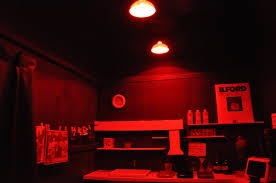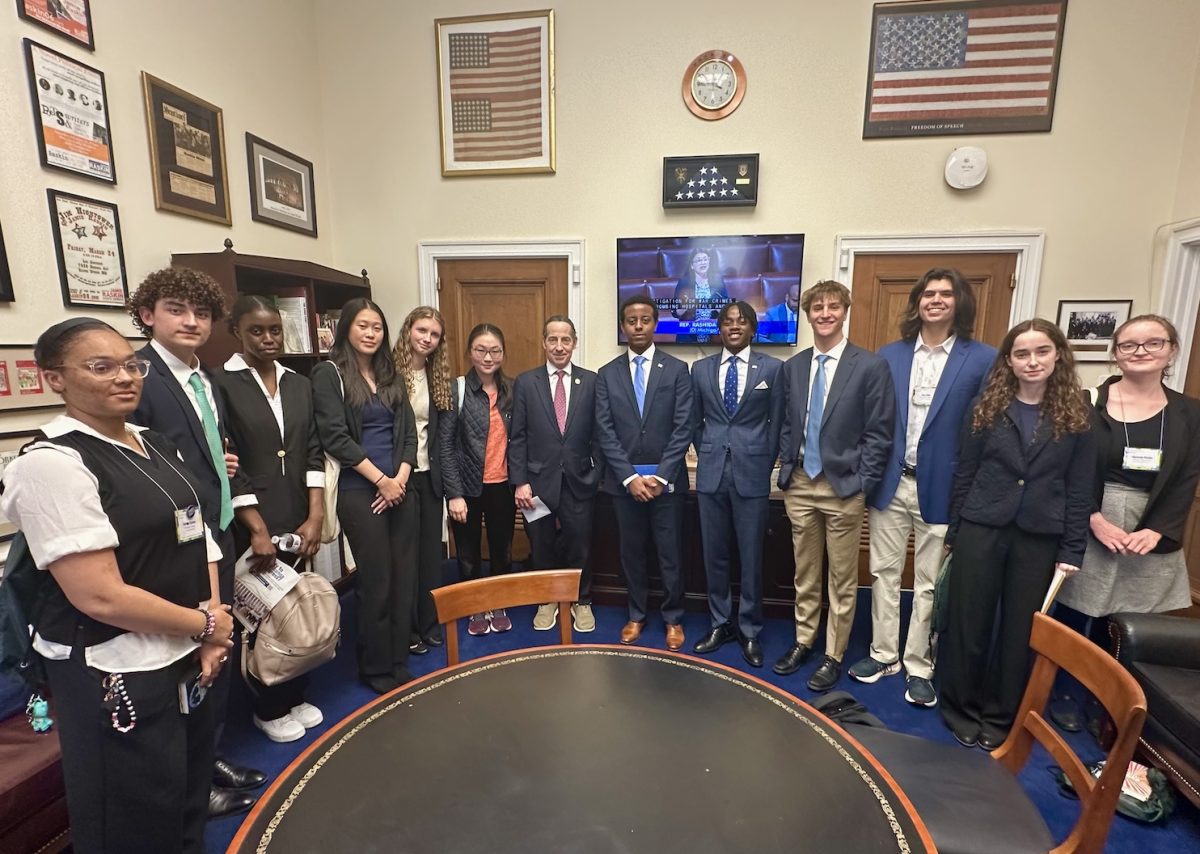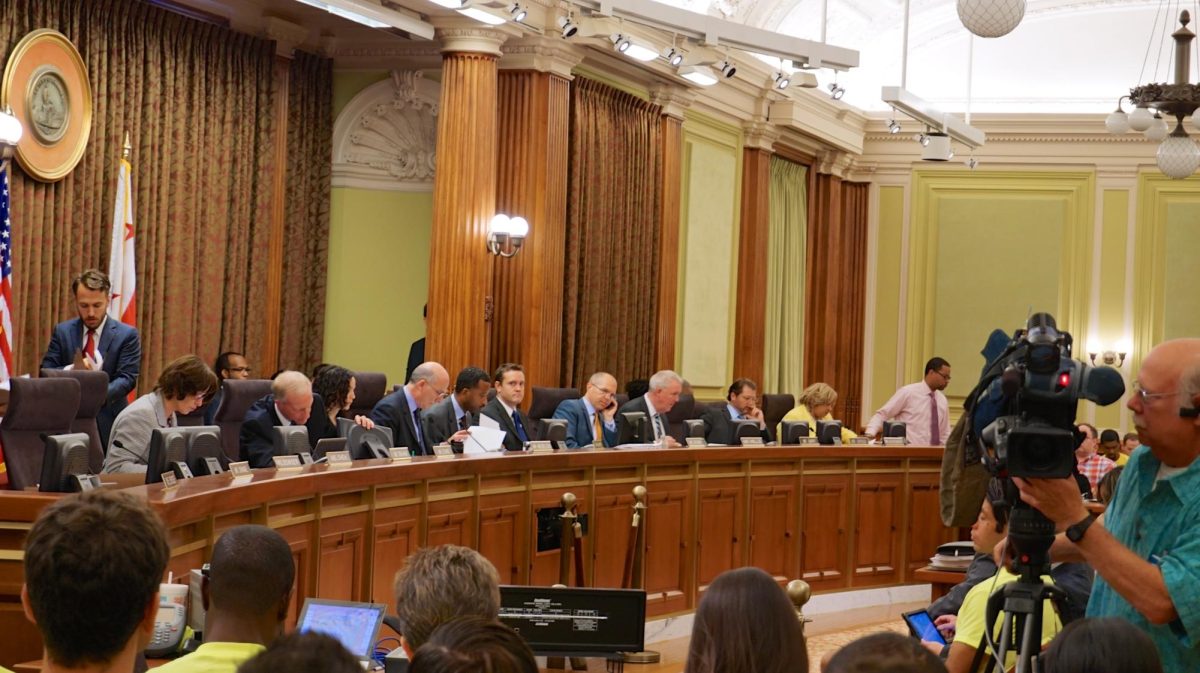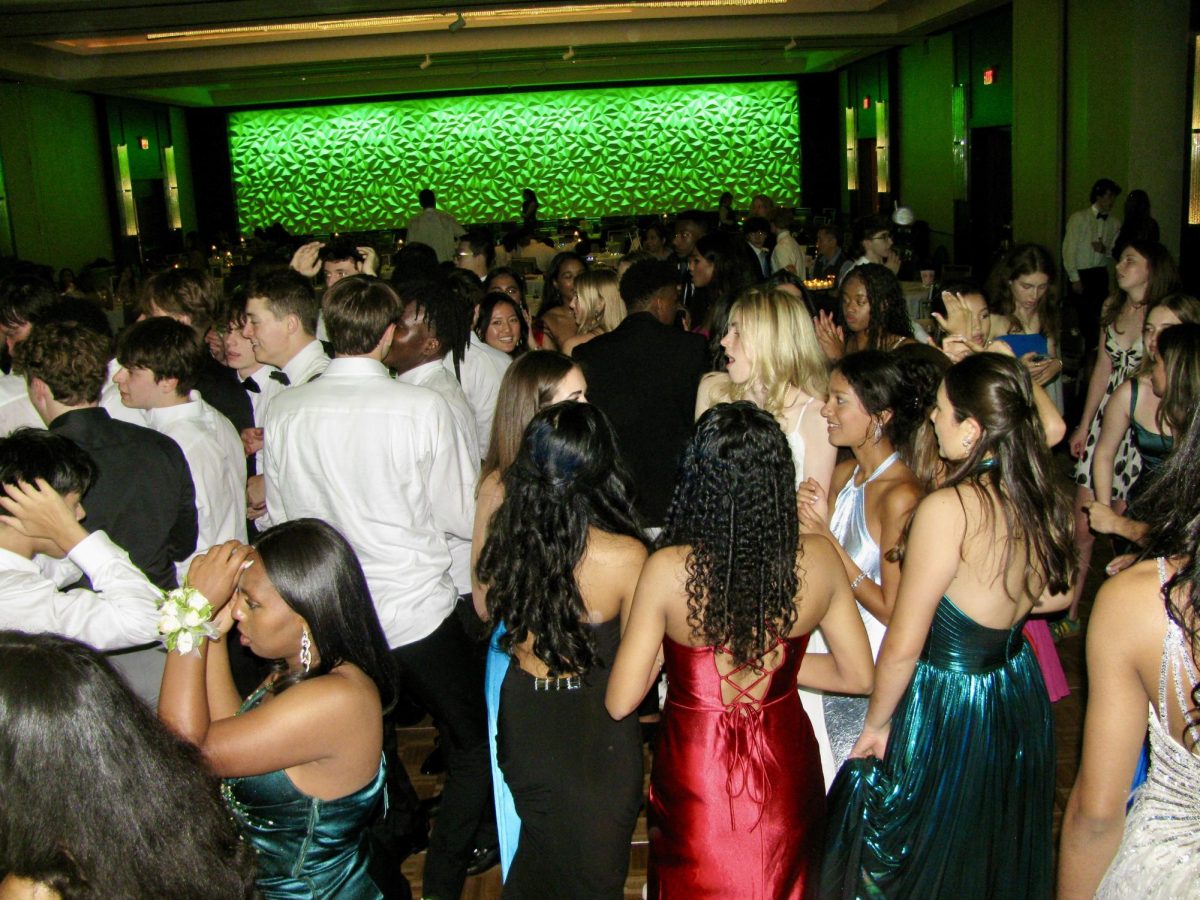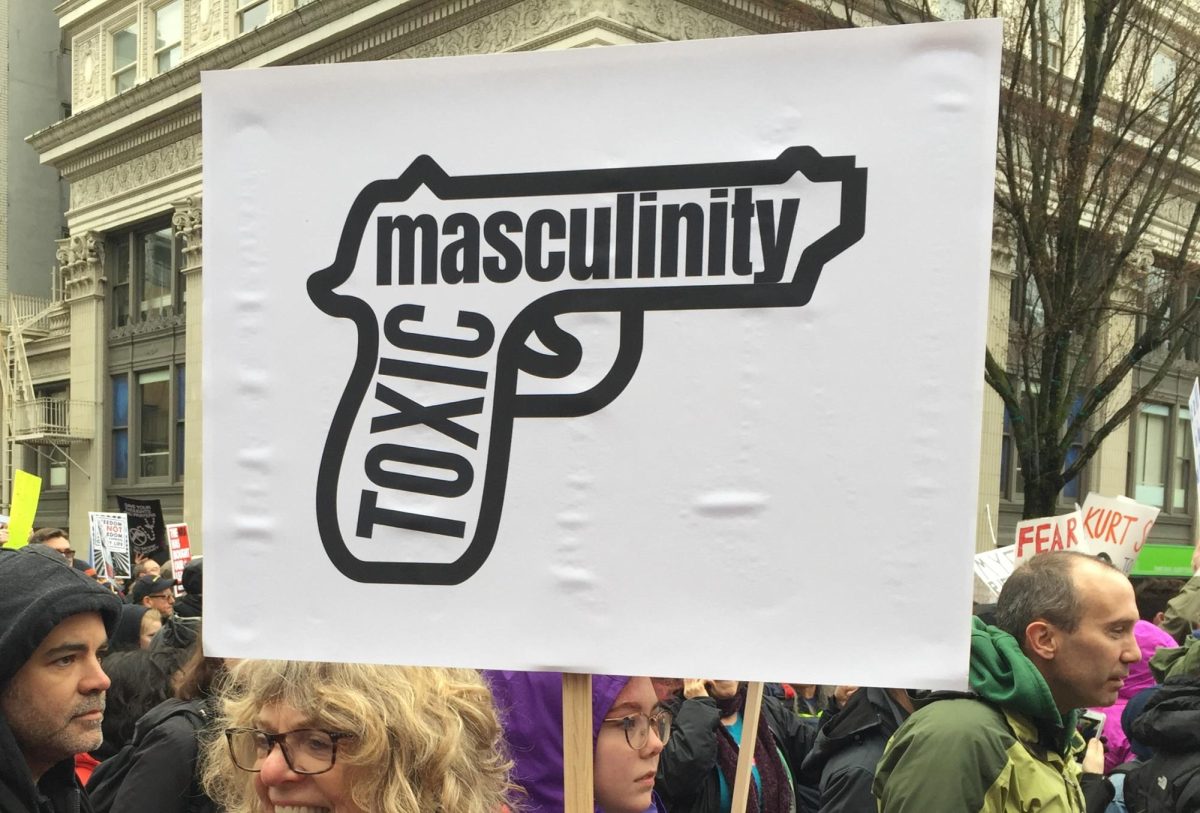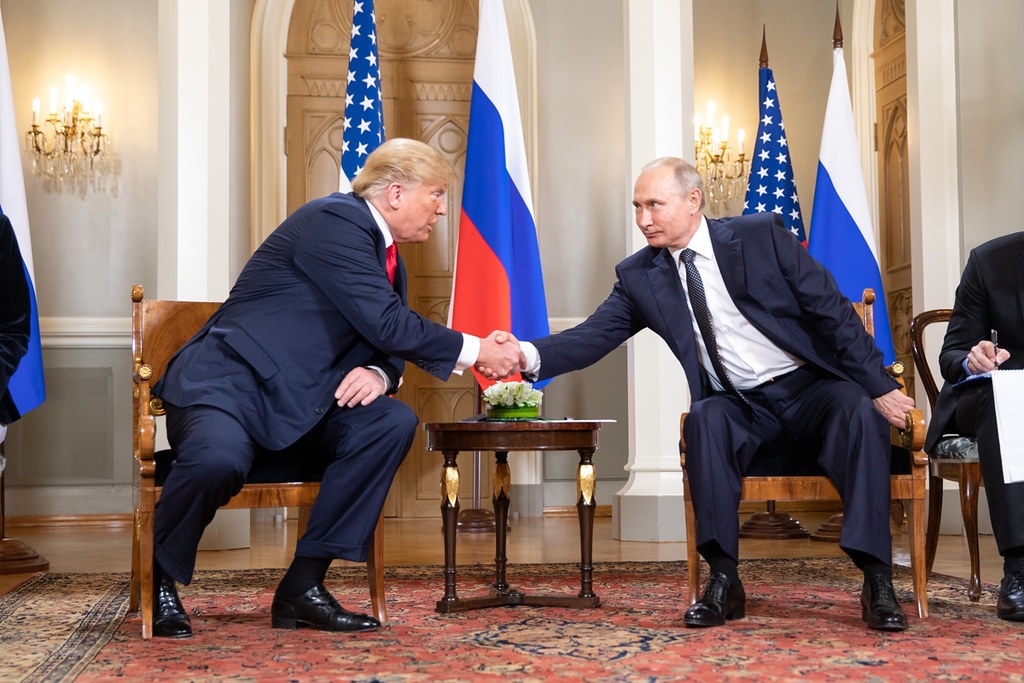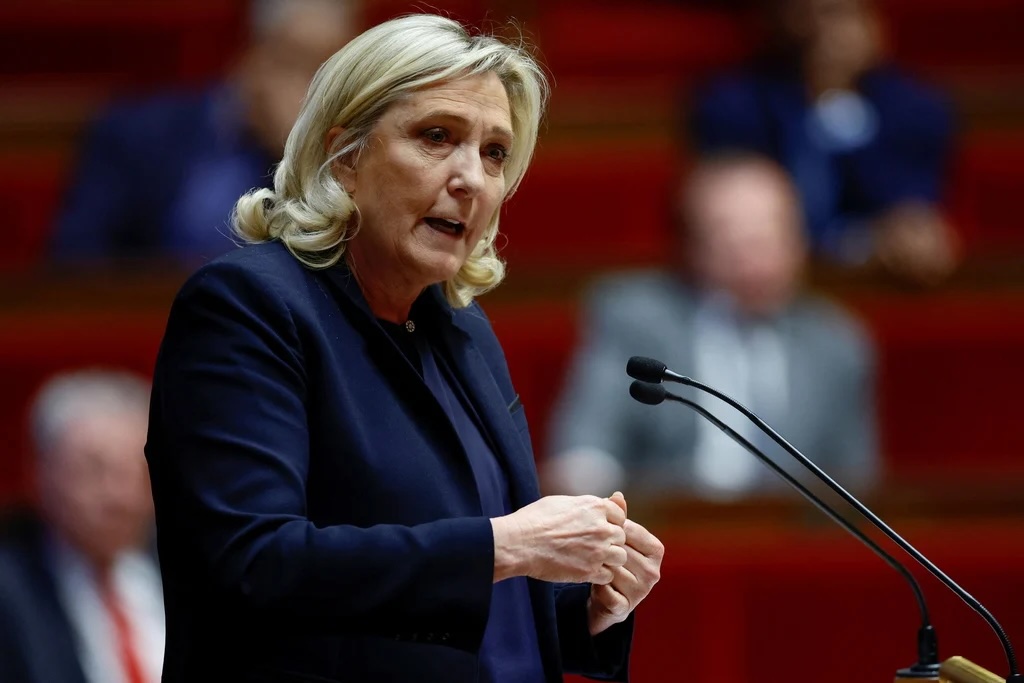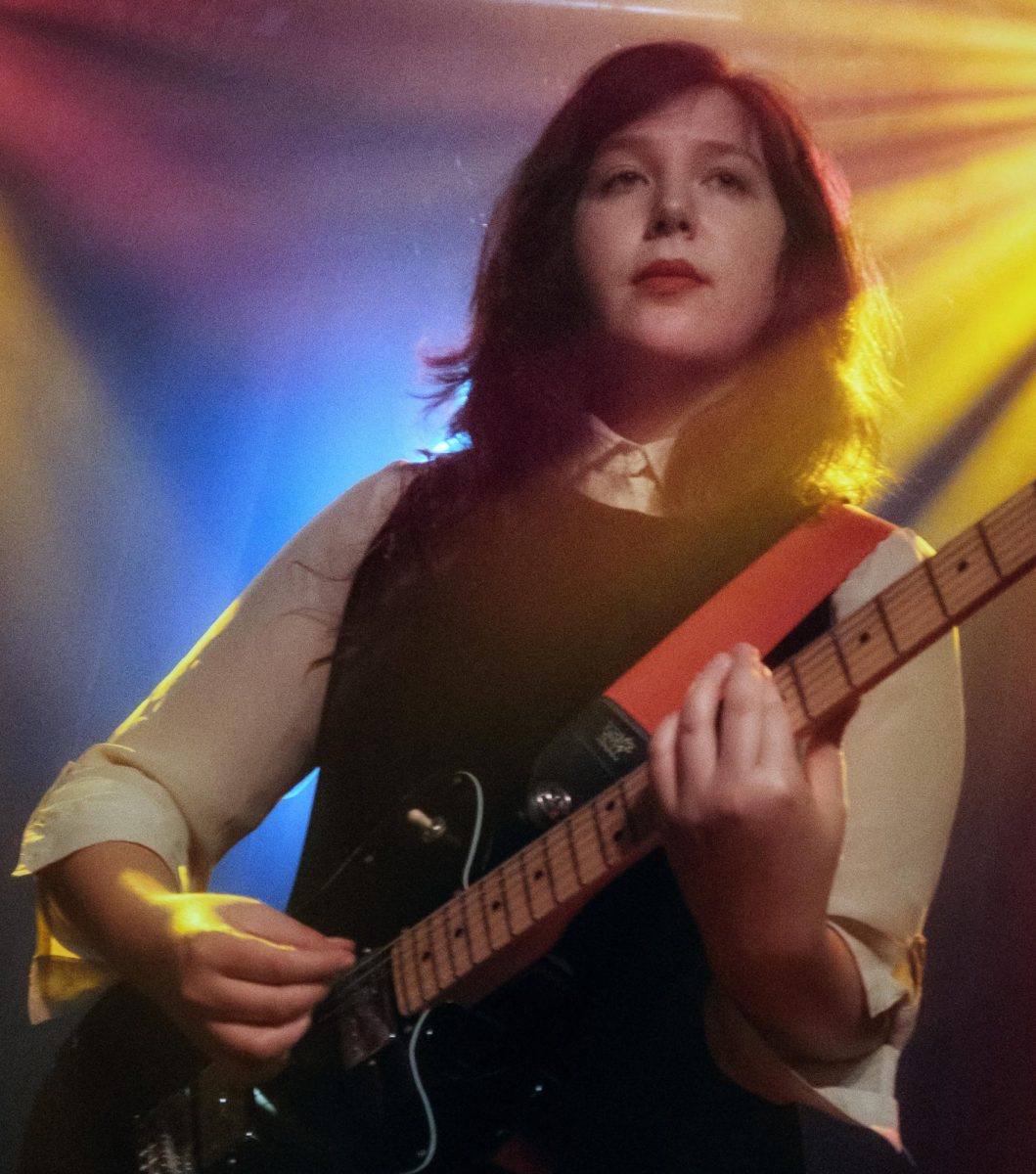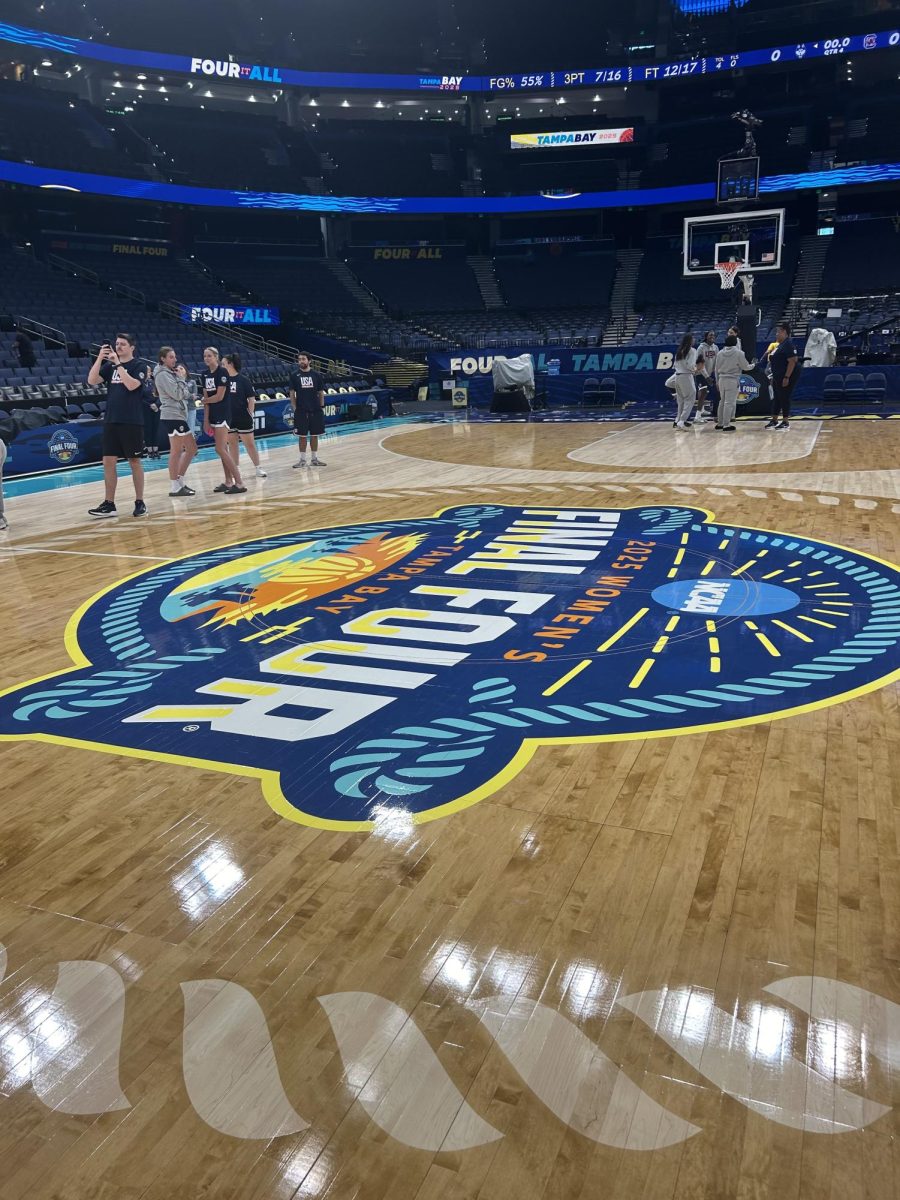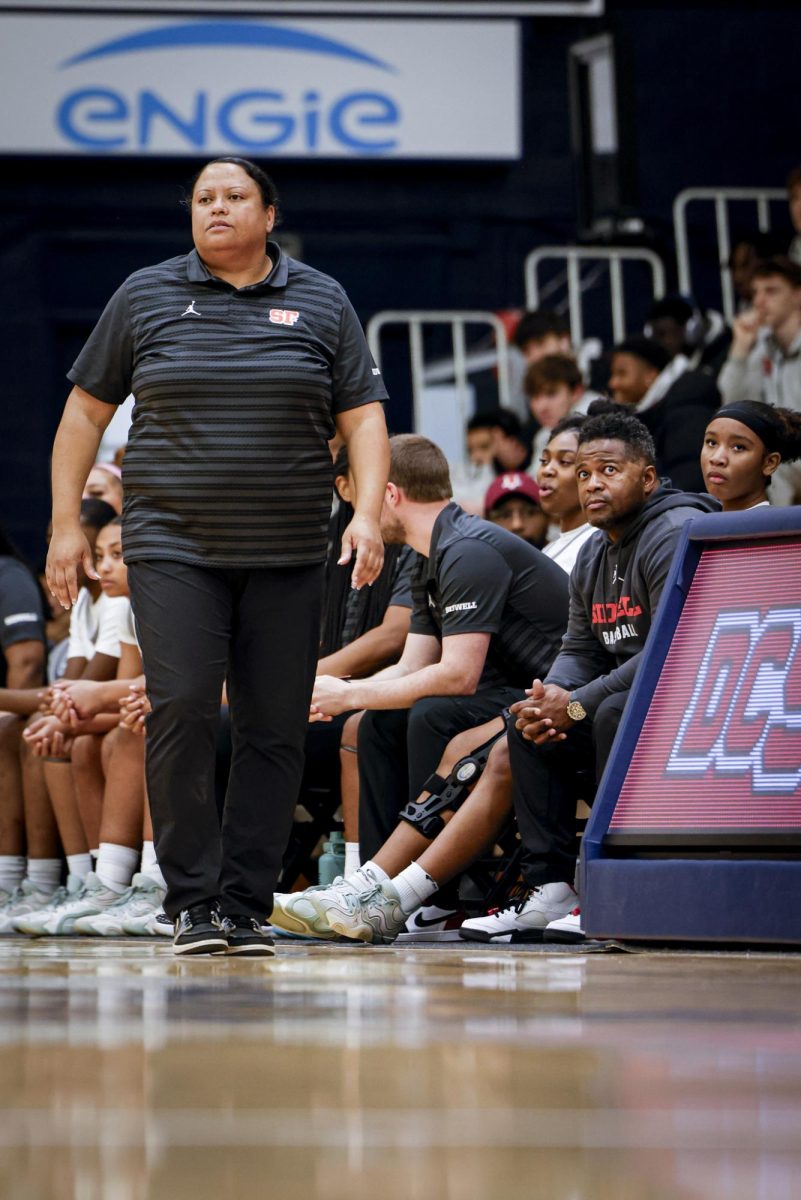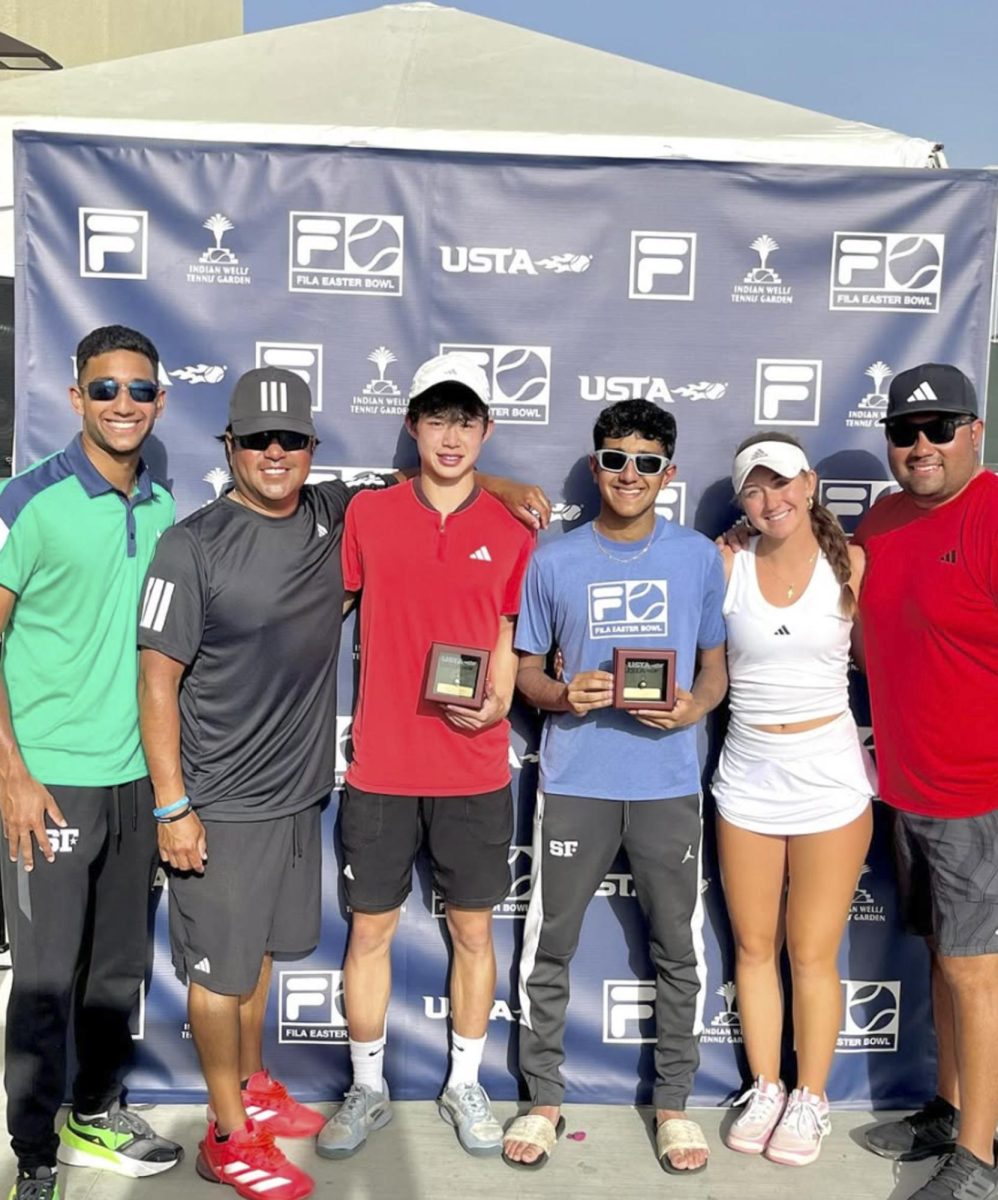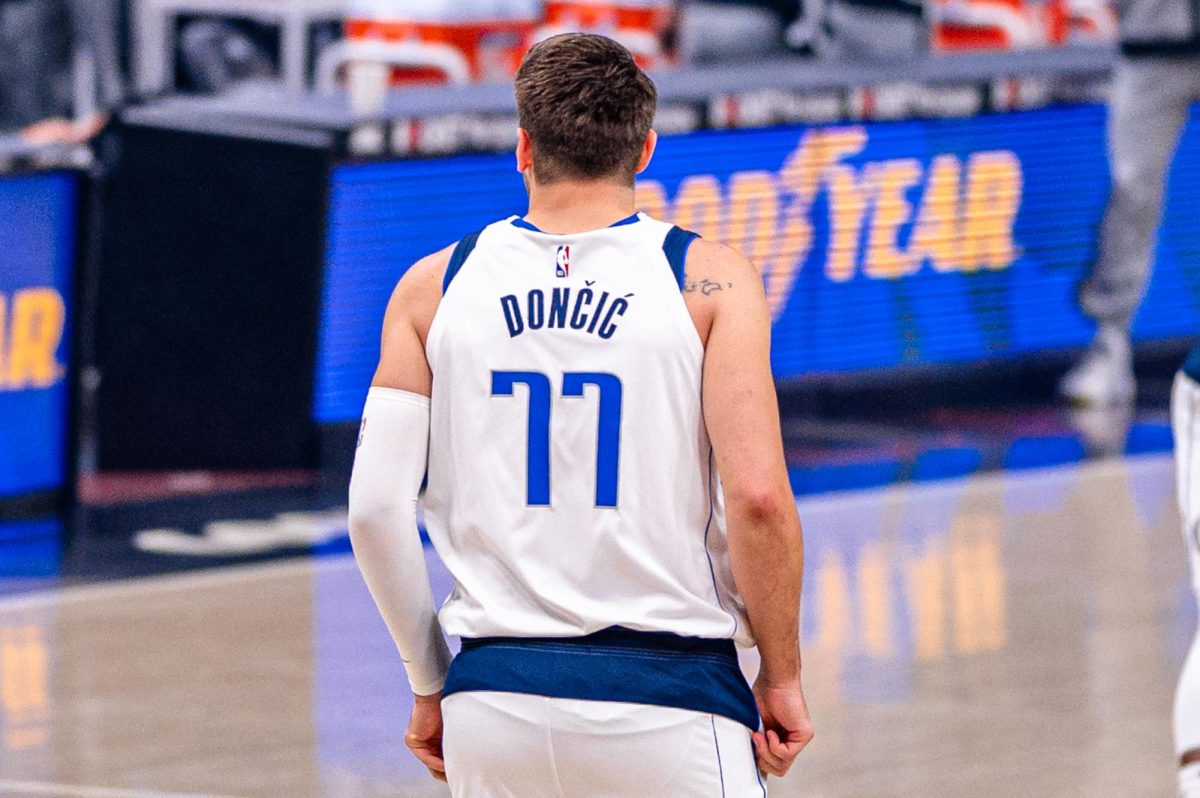At 12:12 a.m. on Feb. 2, Shams Charania, an ESPN American sports reporter, broke the news that the Dallas Mavericks are trading Luka Dončić to the Lakers.
This news headline garnered massive attention as the Mavericks are trading their star player, Dončić, amid his prime for an aging, injury-prone, big man in Anthony Davis under the notion that “defense wins championships.”
The trade was unconventional and groundbreaking. It was not unusual for teams to trade stars who wanted out of the city or believed they could contend on a different team. Kevin Durant, James Harden and Davis — when he was on the Pelicans — were all examples of this type of trade. The oddity about the Dončić trade was that he did not want to leave, and the Dallas Mavericks were championship contenders.
The Mavericks finished last season with a 50 and 32 record, earning themselves the fifth seed in the Western Conference. Their shining star, Dončić, was averaging thirty-four points, ten rebounds and nine assists, enough to earn him third in the Most Valuable Player race.
Dončić continued his excellent season, leading the Mavericks to the NBA Championship Finals, ultimately falling short to the Boston Celtics. The season was a major success for the Mavericks, who sought to expand the talent on their roster and continue to develop their young stars, notably Derrick Lively and Dončić, the latter of whom is only 25 years old.
The team had a strong offseason, signing three-point specialist Klay Thompson, and came into the 2025 season prepared to contend for the championship. The Mavericks struggled early in the season, primarily due to Dončić’s calf injury in late December, but were on pace to make it to the playoffs and prepare to go on another run.
Then the tweet came out. Dončić was out of Dallas and Davis was in. The deal happened in the middle of the night, behind closed doors, almost too suddenly, and in the opinion of many Maverick fans, for too little.
Later that morning, the trade details were disclosed: Dončić, Maxi Kleber and Markieff Morris for Davis, Max Christie and a first-round pick. Everyone was surprised: the fans, the players and, most importantly, Dončić. That’s the first reason the trade was so peculiar: Luka did not want to leave Dallas.
European players are often touted for their loyalty to the franchises that drafted them or gave them a chance. Dončić, one such European player, had not publicly disclosed any intentions to leave the franchise and was looking to play an integral part in bringing the city of Dallas a championship.
However, the Maverick’s General Manager, Nico Harrison, did not feel the same way. Harrison wanted to contend for another championship immediately, and felt that Dončić was not going to get them there.
Instead of shopping Dončić to the rest of the league, Harrison made the trade behind closed doors. Shopping Dončić would have allowed Harrison to begin a bidding war amongst teams looking to recenter their franchise around a player who could immediately boost a team into playoff contention.
Instead, Harrison talked privately with the Laker General Manager and friend, Rob Pelinka. The job was so secret that Danny Ainge, the CEO of the Utah Jazz, the third team in the trade, was not even notified that Dončić was being traded until an hour before the deal. Harrison instead traded him in complete secrecy to allegedly avoid Dončić and his agent exerting influence over the team. The problem is that even without leverage, the Mavericks barely got anything in return for Dončić.
Davis is an exceptional player, earning himself the title of an All-Star for the tenth time, an incredibly rare feat. However, Davis’ value as an aging thirty-one-year-old with extremely high injury risk made him an odd choice for the Mavericks. The Mavericks could have targeted much younger players with the same, if not better, skills that Davis has.
Other than a select few veterans in the league, there are very few untouchable players in trading for Dončić. Davis does provide some value to the trade, but considering that the New York Knicks gave up six first-round picks to get Mikal Bridges in 2023, and the Toronto Raptors gave up a first-round pick to trade for Brandan Ingram this February,
Only one first-round pick may not be enough to ward against the risk of Davis getting injured or having an early retirement. The gamble that the Mavericks took moving away from Dončić simply does not make sense from a future or current perspective, according to Bill Simmons.
Pundits, including Dan Le Batard, believe that should the Mavericks win the championship, Harrison can laugh at the fans and tell them that he made the right decision, but until then, he could go down as executing one of the worst trades in NBA history. Bleacher Report has rated the latest blockbuster NBA trades and gave the Lakers a rating of A+++++ and the Mavericks an F.






